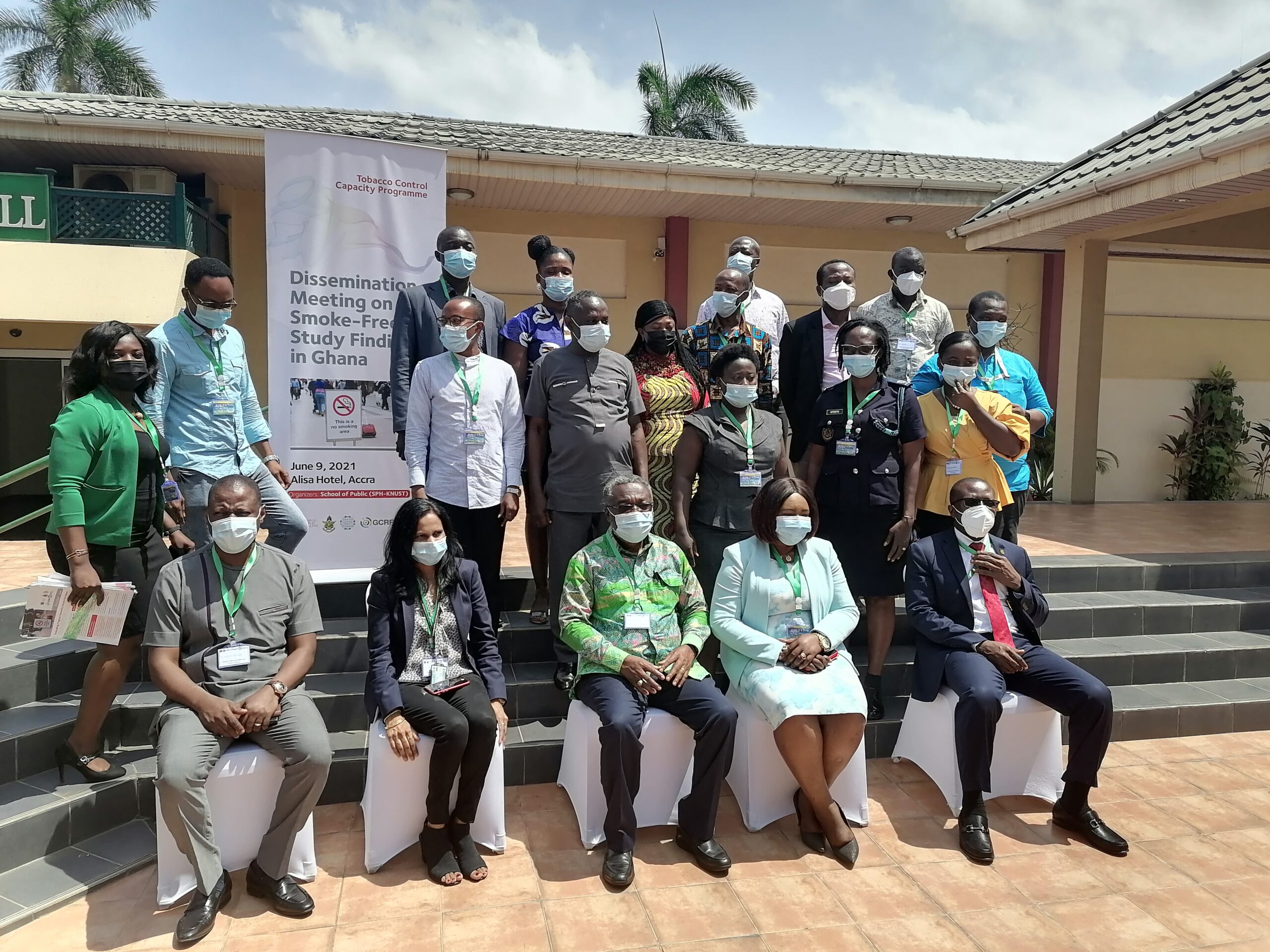Ensuring a Smoke-Free Ghana: Report highlights lack of compliance to policies
- Advertisement -
A study to evaluate compliance to smoke-free policy implementation in Ghana has highlighted a general lack of compliance to the policy especially in the areas of hospitality facilities, air quality measurement and hospitality venue ownership and staff, among others.
The study conducted by researchers from the School of Public Health of the Kwame Nkrumah University of Science and Technology (SPH KNUST) also revealed that despite the poor knowledge and low compliance levels with the current policies, there is largely a support for the ban on smoking in public places by staff of hospitality facilities in the country.
- Advertisement -
“Covert observation of hospitality venues reveals a lack of compliance to current smoke-free policy. This suggests a heightened risk to the non-smoking population in these areas and the associated air pollution drifting into adjacent indoor areas via open windows and doors,” stated Dr Arti Singh – one of the researchers who revealed this in Accra on Wednesday during a dissemination exercise to outdoor the findings of the study.
- Advertisement -
On air quality measurements, the researchers observed that air quality was poorer in venues where smoking was observed, when compared to venues where smoking was not observed.
Read More: 29th Ordinary Session of the ECOWAS Administration and Finance Committee opens in Accra
“Despite good progress in air quality as compared to earlier studies, the current public smoke-free policy does not fully meet the standards of Article 8 of the WHO FCTC as there is no risk free level of Second Hand Smoking and even brief or minimal exposure can cause harm,” Dr Singh and her team discovered.
Article 8 of the FCTC requires Parties to adopt and implement effective measures providing protection from exposure to tobacco smoke in indoor workplaces, public transport, indoor public places.
It also came to light through the study that, despite a strong support for Ghana’s smoke-free policies, staffs of hospitality venues lack knowledge on tobacco control and current policies, suggesting a need to educate hospitality industry workers since they are more exposed to second hand smoke.

Recommendations
In view of these findings and others, the researchers have recommended the need for civil society actors to dedicate resources into implementing targeted media and educational campaigns to inform hospitality workers and the general public about the existence of the smoke-free policies in Ghana and the health hazards of second hand smoking to non-smokers.
They have also urged the Food and Drugs Authority (FDA) and the Ministry of Health (MoH) to continually monitor compliance and enforcement of the current smoke-free policy.
- Advertisement -
“As part of the government’s obligations under the Framework Convention on Tobacco Control (FCTC), a review of the current smoke -free policy is required to facilitate the adoption of the implementation of the comprehensive smoke-free policies,” the report recommended.

Background
Tobacco is a growing cause of death and disease in Sub-Saharan Africa (SSA). 77% of global smoking-related deaths and 89% of second hand smoke related-deaths occur in low-and-middle-income countries.
Reducing exposure to Second hand smoke is therefore an important public health challenge for countries like Ghana, where smoke-free legislation can have significant impacts. Ghana has a partial smoke-free policy, which prohibits smoking in enclosed public areas including hospitality venues but allows for Designated Smoking Areas (DSAs).
Currently in Ghana, there is a rise in tobacco use, particularly water pipe, among young people. The non-smoking population is also exposed to second hand smoke, particularly in hospitality venues including bars, hotels, restaurants, night clubs, and pubs.
It is believed that the implementation of comprehensive smoke-free policies can provide several benefits for population.
Given that tobacco use is rising among the youth, and that young people are likely to congregate in hospitality settings, it is important that smoke-free policies are thoroughly implemented in these settings to reduce exposure to second hand smoking, encourage smoking cessation and reduce uptake.
Experts say the creation of 100% smoke-free environments is one of the most effective, science-based measures to protect the non-smoking population from the harmful effects of exposure to second hand smoking. The report therefore highlights the need for strengthening compliance and enforcement of the current smoke-free policies in Ghana.
The study titled “Evaluating Progress Towards a Smoke-Free Ghana” was supported by the UK Research and Innovation (UKRI) with funding from the Global Challenges Research Fund with the involvement of researchers from the School of Public Health (SPH-KNUST) and the University of Edinburgh (UK).
Other members of the team include Professor Ellis Owusu-Dabo, Devine Darlington Logo, Fiona Dobbie and Patricia Amoah Yirenkyi.
By Jeorge Wilson Kingson || ghananewsonline.com.gh
- Advertisement -


